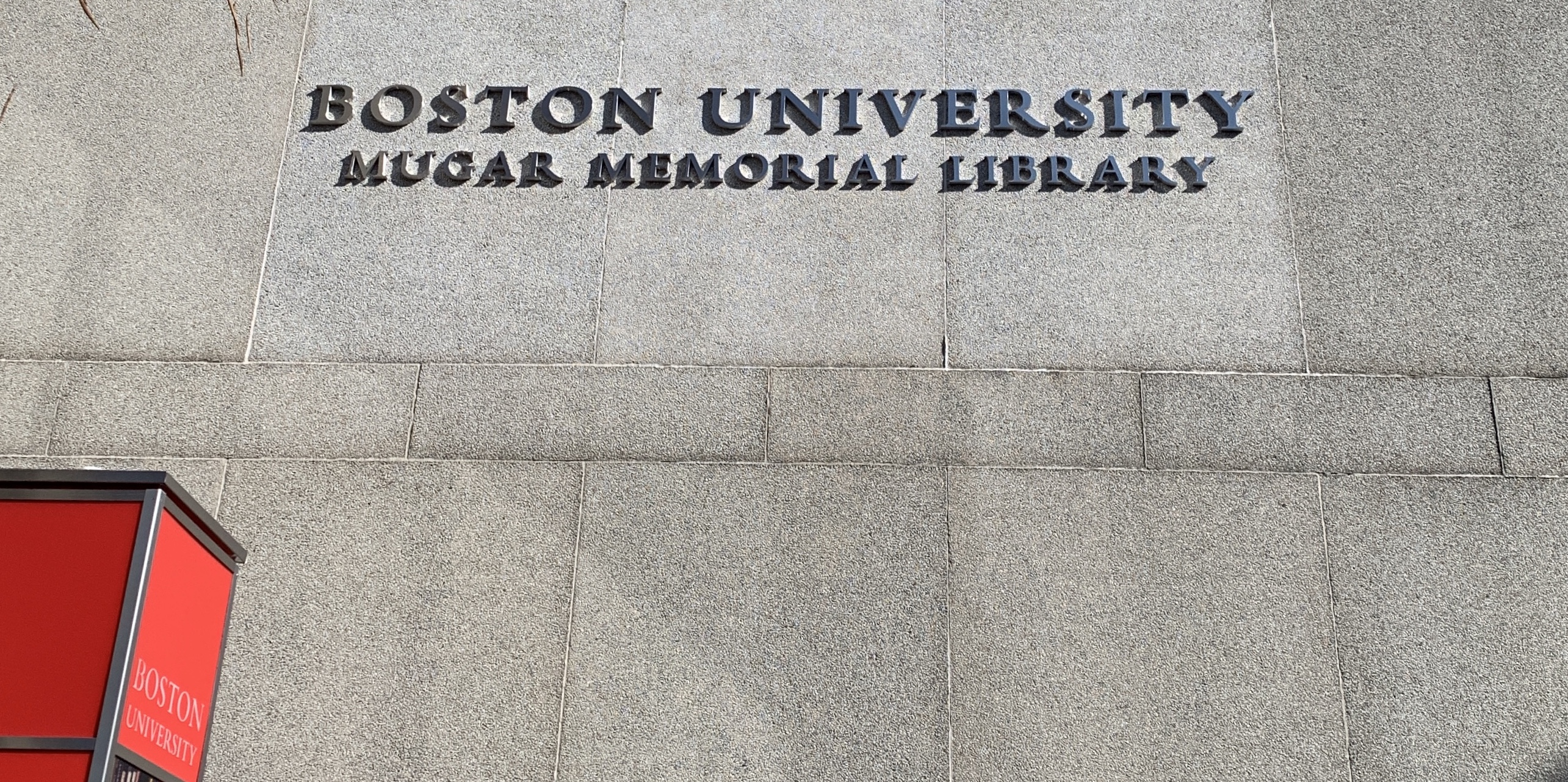
🎵 Chorale (Five) – Iskra String Quartet
Introduction
In my first post as an entrepreneur in residence at BU Libraries, I mentioned that I would revisit the topic of vendors competing themselves away through “red ocean” iteration. It’s a very intricate topic that will require several posts to dissect. But I wanted to begin this commentary by defining the vendor conundrum that universities find themselves in today.
The other day I was invited to my first meeting as a library employee with a vendor. After thousands of these meetings as a vendor over the past 10 years, I had a very unexpected light bulb moment. Before I get into my epiphany, I want to share a sincere apology to previous clients for all of the times you’ve had to endure my droning on about a product or service that was completely irrelevant to anything you were currently focused on at the time.
I’m genuinely sorry.
Over the years I’ve learned that there is pretty substantial distance between the world of a vendor and the world of a librarian. And the points of intersection between these worlds are actually few and far in between.
This didn’t click for me until I began to meet with deans, directors, university librarians, CIOs and their ilk back in 2014. These were the days when the “business of higher education” was first introduced to me. Prior to this, I along with my colleagues had a well-established understanding that as for-profits, we were the capitalists with “real” business objectives, and our customers were the socialists who had the ability to prioritize ideals.
The level of staff I interacted with held to this worldview (oftentimes both personally and professionally), and propagated it through most of our interactions. This had an unintended downstream effect: vendors developed a blindness towards the notion that libraries and universities themselves have business needs too – needs that are increasingly impacting the decision-making process vendors solely cared about historically: if and when you will buy my product.
The Vendor Conundrum
Now, the other day I had the surreal experience of hearing how I sounded all of these years: Knowledgeable, tech-savvy, and perhaps at times intelligent. But the three traits I was missing in that repertoire were humility, relevancy and empathy.
The vendor representative recited a pitch and the expected alternate angles to overcompensate for missing two immutable facts:
- Every library leadership team today has vast internal pressure
- That pressure is most likely not what a company assumes it is
The obvious solution would seem to be to lead with questions not statements, to listen more than talk, then work diligently to meet those needs. But the incentives at each point in the value chain are misaligned.
First, commercial vendors are not consulting firms who design responsive solutions for clients, but oftentimes firms that have made large, irrevocable bets on product investments which require a multiple ROI back to shareholders.
Second, employees who work for these firms are compensated based on generating said multiple ROI.
When a company’s business interests compete with those of the institution, the library’s representatives aren’t aware of the conflict, and the vendor’s representatives are financially incentivized to keep them unaware—herein lies the vendor conundrum.
This creates a situation where institutions run the risk of funding potential competitors in the short term, or worse, outsourcing the institution’s value in the long term, thereby disintermediating itself out of the supply chain between consumers of higher education and service providers.

I’m reminded of a conference I attended a few weeks ago in Baltimore with Academic Impressions. We had an icebreaker session where academic leaders predicted trends that will impact universities leading up to 2030. One was tech companies competing directly with universities for tuition revenue, either by acquiring a university and competing head-to-head with other institutions, or by picking apart different verticals within the higher education experience and offering them a la carte to students.
Conclusion
Now, it should go without saying, but is worth noting that I’m not anti-vendor. I believe that libraries benefit from third-parties to best serve their stakeholders. But I also believe that in order for this relationship to remain mutually beneficial, the power dynamic needs to be rebalanced.
While there’s no magical antidote to this issue, here are some pragmatic solutions to help future-proof libraries from an unfavorable future outcome.
- Educate vendors on your situation. The companies that serve you, and especially the representative you work with, most likely isn’t aware of the operating context you have to navigate within your institution. The best vendors will take this to heart and develop products, policies, and pricing models that accommodate your needs.
- Expose staff to the business of higher education. Far too many vendor relationships are managed by employees who are not versed on the financial situation of their institutions.
- Develop a vendor relations policy. Increase your organization’s leverage by creating rules that govern the way your staff interacts with vendors. Iterate on it throughout the fiscal year.
- Share best practices with peers. Despite the amount of backchannel conversations that take place about vendor experiences, best practices that inform what happens after the contract is signed, post RFI/RFP, to set the library up for success are still lacking.
I’m thinking through this everyday and curious to get your thoughts or talk through specific scenarios. Let’s chat @zanders on Twitter or by email at tony [at] skilltype [dot] com.
Thanks to Louisa for giving me another set of eyes on this.





3 comments On Libraries and The Vendor Conundrum
i’ve been on both sides of the table like yourself, but my experience had been different. at one time I worked for a local government who wished to buy and implement an ECM system within 6 months of my onboarding. I had to point out how that was unrealistic as they really didn’t know what they wanted nor did they know what their current state was. Needless to say within a year’s time we put the project on hold when they realized that it wasn’t has easy as they thought it would.
in my experience as a vendor SME the vast number of customers didn’t really know what they were buying or how to implement it. As I told the the vast majority “the sales person lied to you”
Thank you so much for this thoughtful essay, its insights a breath of fresh air online. I’ve spent my career as a Federal historian and archivist with some records management duties. The way we preserve knowledge has changed greatly in the four decades since I entered public service. What others will know of the times we live in after we are gone depends on an intricate linked chain that works best when carefully aligned and can be so fragile, it is easily broken. As a Federal historian whose job includes understanding workplace cultures, what’s said, what isn’t, I’ve sought to build bridges, ones that depend on some of the qualities you mention, including humility, empathy, willingness to listen.
The preservation of knowledge in the electronic age depends on an incredibly delicate alignment of private and public partners: vendors, contract IT and records management personnel, civil servants, among them knowledge accountable officers in functions such as mine,, and creators of records. And that’s just within an employing organization. There are others outside who exert (or have the potential to exert) positive or negative influences.
In instances of worst case misalignment, the participants can end up in a cycle of performative acts on stage in a theater, some fully aware of the compelled performance, others not. I’ve seen alignment and misalignment; the former occurs when some of what you describe is present. Thanks for a great post that helped me center, re-balance, and better understand some of what I’ve seen, recognizing the serenity in your essay that comes with striving to do better. Yes, Peter Gregson’s piece helped, as well.
Pingback: What we read this week (16 August) – BMJ Labs ()